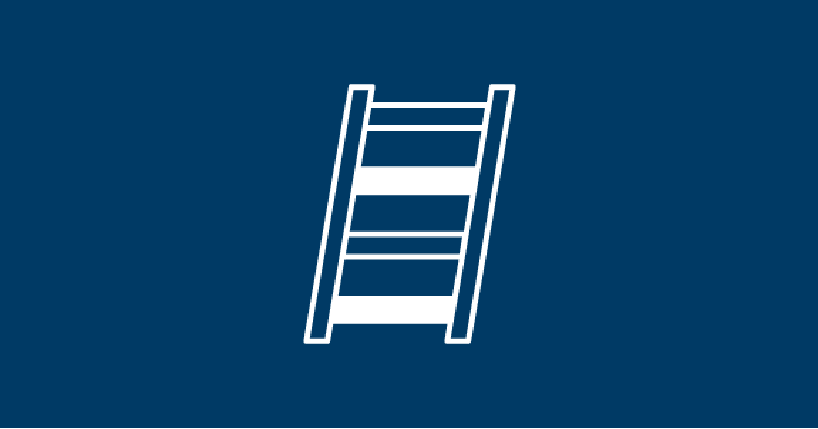Curriculum Design
NEW: A vision for education and skills at Newcastle University: Education for Life 2030+
Overview
In the toolkit's design section, we integrate your initial discovery insights and outputs from the Curriculum Discovery Event and help you to explore your programme design holistically. We begin by outlining the broad aims and graduate outcomes of your programme, then refine the programme objectives to specify the knowledge and skills learners will acquire at each stage of their educational journey.
Guidance and resources in this section cover four key areas:
- Programme-level design: Develop strategies to clearly define and articulate the learning outcomes your students will achieve by the end of the programme.
- Programme module structures: Learn effective ways to structure modules and sequence learning to build on foundational knowledge effectively.
- Assessment and feedback strategy: Explore diverse, inclusive, and authentic methods to assess and provide meaningful feedback to students.
- Teaching approaches: Discover pedagogical techniques that foster active learning and prepare students for success during and after the programme.
- Module blueprints: Develop blueprints based on teaching approaches and assessment strategy.
- Review your draft programme.
- University policies and the programme approval process: ensure your programme is well-structured and thoroughly documented
We hope that these resources will support you in crafting an innovative and equitable curriculum that not only meets your students' needs, but also aligns with our educational vision.
Throughout this section, our core curriculum design principles serve as a foundation, ensuring that every aspect of your programme reflects best practices in educational design and delivery.
Programme-level design
Programme-level design shifts from isolated module development to a cohesive, collaborative approach that brings programme teams together to reflect on and leverage their collective expertise. Working in this design space fosters a shared understanding of the programme's philosophy and foundations. Through these activities, you create a clear developmental journey for students that progressively builds their knowledge and skills. This approach enhances the student experience while optimising resource use and promoting collaboration among colleagues.
Below, we provide a range of activities and resources to support you with programme level design.
Activities and resources
Guided activities
- Drafting programme learning outcomes - activity design to draft key principles/keywords for the programme learning outcomes.
- Stage Outcomes - activity is relevant to multi-stage programmes. It helps give clarity on student progression through the programme and enables colleagues to work in stage level teams on the module breakdown and blueprints for that stage.
- Elevator Pitch - this activity works well towards the end of high-level programme design. It helps generate succinct statements of the offer to students feeding into marketing. It can be also done at a later stage, at module level.
Reflective questions
How can you engage various stakeholder groups in programme design to align with our Education Strategy (Equity, Encounters with leading edge and Fit for the future) and better support our future students?
- In what ways can you ensure that the curriculum promotes a cohesive learning journey across all modules?
- What key competencies and skills should your graduates possess to thrive in their chosen fields?
Programme Module Structures
Once you have a clear idea of your programme aims and programme learning outcomes, you can begin to add modules to your programme.
In this part of the design process, be prepared to adapt your initial plans as you consider the development of knowledge and skills through the programme, ensuring that pre-requisites are in place. You will want to do this collaboratively and to build in time to reflect and adjust. It is important to document decisions and have a central place where colleagues can access the design as it develops.
For undergraduate (multi-stage) programmes, having an agreed set of stage-level objectives will enable colleagues to work on the module structure in stage-level groups.
The approach you take here will be influenced by:
- The number of shared modules you intend to use from other programmes.
- The degree of optionality in your programme.
- The conventions your Faculty has on the credit size for modules.
- The number of colleagues in your programme team.
Practical Guide
In a workshop setting, we have found it helpful to use a single sheet of paper to represent each module. A standard template like the one below can be used. Use these pages to propose modules and link them to your Programme Learning Outcomes. (For existing modules simply add in titles, credits and topics from the current MOF).
Following negotiation, you will be able to propose an outline for each stage which could be written up in a Word document or as a PowerPoint slide.
Activities and resources
Guided activities
- Module Cards for mapping - simple cards for the mapping exercise.
- Mapping the programme - Modules breakdown - activity designed to help programme teams map out the structure of the programme and propose ideas for modules.
- Topics to modules - this activity helps suggest new modules for an existing programme. It is useful e.g. when redeveloping a programme for a new module credit size. This is usually done in re-design – regrouping existing topics. For new programmes, Mapping the Programme could be more appropriate.
Additional resources
-
The Newcastle University's Qualifications and Credit Framework (QCF) sets out the minimum credit values that programme structures need to meet for their qualification type. This is a key reference document for ensuring your modules at each stage are at the level of study required to meet these credit values.
Assessment and Feedback Strategy
Assessment and feedback play a crucial role in shaping student learning and outcomes. This section explores designing effective programme-level assessment strategies, including authentic assessments and diverse assessment and feedback activities.
Through thoughtful programme-level assessment design, we can enhance student engagement, promote self-reflection, and improve overall educational quality.
In addition to providing guided activities, the section below directs you to existing resources available on the LTDS website.
Activities and resources
Guided activities
- Assessment strategy - Activity to agree on assessment principles, and discuss the assessment mix and journey.
- Assessment Superchargers: Activity presentation and game cards. The goal of this activity is to create high-impact and authentic assessment opportunities while harnessing the power of diverse potential feedback sources.
- Assessment Journey - another activity to draft, and form a consensus on, the assessment journey - from the point of view of students.
- Hack your assessment - evaluate your assessment for generative AI use.
Additional resources
- The Learning and Teaching website is a useful resource for assessment and feedback. It provides comprehensive guidance and resources on designing effective assessments, including writing assessment criteria and creating programme-focused assessments, as well as strategies for delivering constructive feedback: Assessment and Feedback - Learning and Teaching @ Newcastle
Reflective Questions
- What types of assessments align with your learning outcomes?
- What principles do you want to adopt around the balance of formative (low-stakes) and summative (high-stakes) assessments?
- How can you design assessments to be inclusive and fair to all students, taking into consideration diverse backgrounds, needs, and potential barriers to success?
Teaching Approaches
Each discipline has its own established teaching approaches. For example, case-based learning is normal in medicine; fieldwork is common in Geology; and seminars are widely used in the humanities. Some of these are signature pedagogies (Shulman, 2005) conveying knowledge, skills and values essential in professional fields.
At a module level, the teaching approaches and assessment tasks need to be consider together. Your teaching approaches are chosen to enable your students to develop the skills you will assess, and you justify your rationale for this in the MOF.
Before working at the module level it is helpful to consider the mix of teaching approaches you would like your students to experience across your programme.
Activities and resources
Guided activities
- Teaching approaches activity uses examples of teaching approaches to seed discussion. It prompts colleagues to think about a variety of teaching approaches and consider which of these will best suit their subject discipline.
Reflective Questions
Within your teaching and programme development team you will have a great deal of experience to draw on. As a team consider:
- What variety of teaching approaches will work well across each stage?
- Which teaching approaches will support inclusion and community development?
- What are the workload implications for colleagues and students?
Module Blueprints
Bring forward your thinking around teaching methods and assessment approaches to the module titles you agreed earlier and develop these into "blueprints". Colleagues can work individually or in small groups to draft the learning outcomes, syllabus, assessment and teaching methods.
Save the blueprints in a standard format on your Teams space so that everyone can access and comment on them.
Activities and resources
Guided activities
- Workshop activity - Drafting module aims and learning outcomes.
Review
Reconvene the programme team to review the draft programme evaluating it stage by stage.
Practically, this could involve presenting a short overview of each module (learning outcomes, learning activities, assessment, and syllabus). From these blueprints you will be able to see the programme's assessment journey and the mix of teaching approaches. With this shared understanding the team can then work together to evaluate the design and agree on adjustments.
Activities and resources
Guided activities
- Assessment journey - an activity that can help plan assessment strategy, but also review planned assessment mix from the students' point of view.
- Semester by semester student journey mapping - Use this activity to plot out each stage of your programme, and map out the student journey using various lenses
University policies and the programme approval process
The activities in this section support you in laying the foundation for a successful Academic Case. They not only guide you through the preparation process but also ensure your programme is well-structured and thoroughly documented.
By engaging with this section of the toolkit, your team will be equipped to draft Programme Regulations, Module Outline Forms for any new or revised modules, and Programme Specifications. A well-designed programme at this stage ensures an efficient approval process, saving time and minimising potential challenges later on.
Activities and resources
Additional resources
-
Newcastle University's Qualifications and Credit Framework (QCF) which sets out the number of credits required at each stage for the programme you are designing to fit with our qualifications and named awards.
-
The Frameworks for Higher Education Qualifications of UK Degree-Awarding Bodies https://www.qaa.ac.uk/the-quality-code/qualifications-frameworks contains useful qualification descriptors for the intended outcomes of study at each level, whether this is level 6 undergraduate degree, or a level 7 postgraduate degree. These can be useful when thinking about your programme level outcomes and ensuring these are pitched correctly.
-
Subject Benchmark Statements https://www.qaa.ac.uk/the-quality-code/subject-benchmark-statements set out what the programme learning outcomes and attributes identified in the qualification descriptors would look like for specific subject disciplines.
-
The University's policies for the approval of new programmes and programme changes will guide you through the processes for programme approval and programme changes.

